Related Research Articles

Tel Aviv-Yafo, usually referred to as just Tel Aviv, is the most populous city in the Gush Dan metropolitan area of Israel. Located on the Israeli Mediterranean coastline and with a population of 467,875, it is the economic and technological center of the country. If East Jerusalem is considered part of Israel, Tel Aviv is the country's second-most-populous city, after Jerusalem; if not, Tel Aviv is the most populous city, ahead of West Jerusalem.
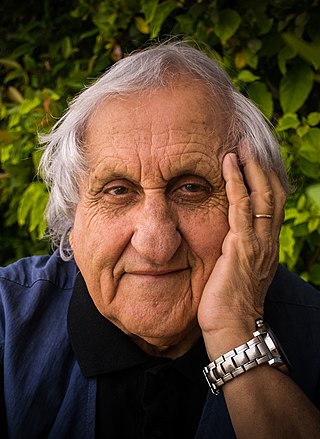
Avraham Gabriel Yehoshua was an Israeli novelist, essayist, and playwright. The New York Times called him the "Israeli Faulkner". Underlying themes in Yehoshua's work are Jewish identity, the tense relations with non-Jews, the conflict between the older and younger generations, and the clash between religion and politics.

Moshe Gil was an Israeli historian.
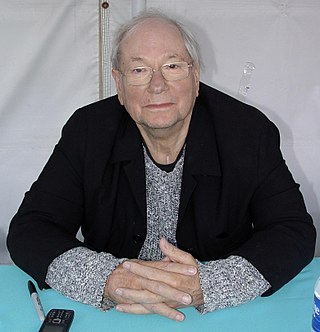
Yoram Kaniuk was an Israeli writer, painter, journalist, and theatre critic.

Rutu Modan is an Israeli illustrator and comic book artist. She is co-founder of the Israeli comics group Actus Tragicus and published the graphic novels Exit Wounds (2007) and The Property (2013).

Michail Grobman is an artist and a poet working in Israel and Russia. He is father to Hollywood producer Lati Grobman and Israeli architect Yasha Jacob Grobman.
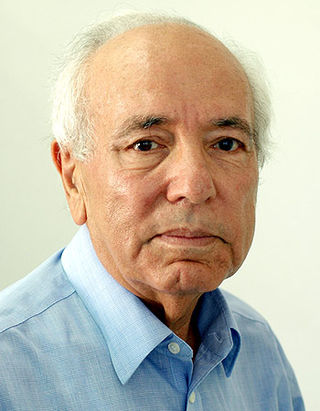
Sasson Somekh was an Israeli academic, writer and translator. He was professor emeritus of Modern Arab Literature at Tel Aviv University.
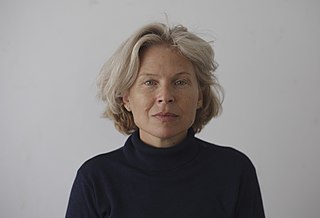
Sigalit Landau is an Israeli sculptor, video and installation artist.

Nava Semel was an Israeli author, playwright, screenwriter and translator. Her short story collection Kova Zekhukhit was the first work of fiction published in Israel to address the topic of the "Second Generation"—children of Holocaust survivors.

Sami Shalom Chetrit is a Moroccan-born Hebrew poet an inter-disciplinary scholar and teacher, and Israeli social and peace activist.

Dov Elbaum is an Israeli writer, editor, journalist, television host and Jewish philosophy lecturer.
Dzanc Books is an American independent press book publisher. It is a non-profit 501(c)(3) private foundation. Michelle Dotter is publisher and editor-in-chief.

Ayelet Gundar-Goshen is an Israeli clinical psychologist and author.

The Jaffa riots of April 1936, refers to a spate of violent attacks on Jews that began on 19 April 1936 in Jaffa. A total of 14 Jews and 2 Arabs were killed during the riots.

Michal Govrin is an Israeli author, poet and theater director.
Abraham Nahum Polak was an Israeli historian, a professor at the Tel Aviv University since its inception, professor of medieval history and founder of the department of Middle-Eastern History. His main areas of research were Jewish history, Arab history, nations of Islam and Africa and the history of the Khazars.

Shira is a 1971 posthumously-published unfinished Hebrew-language novel by Shmuel Yosef Agnon first serialized in Haaretz between 1948 and 1966, his longest novel at 558 pages and the last one he wrote. It was published by Schocken Books and edited by his dauhter Emuna Yaron who also wrote the afterword, and is widely considered one of the greatest Israeli novels.
Shlomo Herberg (1884–1966) was an Israeli poet, writer translator, writer of Hebrew literature, and teacher of Lithuanian Jewish descent, who was born in what is now Kudirkos Naumiestis, Lithuania. He was one of the first professional Hebrew translators in the Land of Israel Tchernichovsky Prize Tchernichovsky Prize for Model Translations for the year 1960. He published many poems, books, songs, stories, and lists.

Yitzhak Gormezano Goren is an Egyptian-born Israeli writer.
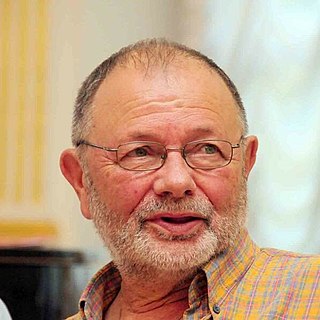
David Markish, is an Israeli prose writer, poet and translator who writes predominantly in Russian.
References
- 1 2 Thomas, Mark (August 8, 2015). "The Lie written for grown-ups (book review)". The Canberra Times.
- 1 2 Rubin, Charlie (June 1, 2014). "Thrillers (book review)". New York Times Book Review. Retrieved May 7, 2019.
- 1 2 3 4 Fisher, Dan (August 25, 1988). "Upstart Takes on the Jerusalem Post: L.A. Investors Among Those Backing New English-Language Newspaper". Los Angeles Times.
- 1 2 3 4 Meisels, Andrew (September 11, 1988). "NEW ENGLISH-LANGUAGE PAPER BEING PUBLISHED IN TEL AVIV". Sun-Sentinel .
- 1 2 3 Ciolli, Rita (May 29, 1996). "The American in Europe / A new Sunday paper hopes to capture a niche overseas". Newsday.
- 1 2 Kestin, Hesh (May 15, 2019). "Hesh Kestin on a Missed Flight That Saved His Life; A boozy night out with bankers allowed the novelist to narrowly escape a deadly terrorist attack". The Wall Street Journal. Retrieved May 7, 2019.
- ↑ Chartrand, Sarah (September 5, 1988). "THE MEDIA BUSINESS; NEW TABLOID TAKES ON JERUSALEM POST". The New York Times.
- ↑ "Israeli Paper Quits". Los Angeles Times. April 4, 1989.
- 1 2 3 Berstein, James (November 6, 1995). "For two companies, a change of venues". Newsday.
- 1 2 Thomas, Mark (June 16, 2012). "Brooklyn Underdog (book review)". The Canberra Times .
- ↑ "The Iron Will of Shoeshine Cats (book review)". Publishers Weekly. 2009. Retrieved May 7, 2019.
- ↑ Evison, Jonathan (November 28, 2012). "A Warrior's Welcome In 'Billy Lynn'". NPR. Retrieved May 7, 2019.
- 1 2 Kay, Barbara (May 28, 2018). "Barbara Kay: I read The Siege of Tel Aviv, the novel they don't want you to read". National Post . Retrieved May 31, 2019.
- ↑ Dolstein, Josefin (May 13, 2019). "He wrote a novel about an imagined Iranian attack on Israel. Then the publisher withdrew it". Jewish Telegraphic Agency . Retrieved May 14, 2019.
- 1 2 3 4 5 6 Horowitz, Mark (May 2, 2019). "Fighting Back Against Cancel Culture". Commentary . Retrieved May 7, 2019.
- 1 2 Kirsch, Claire (April 24, 2019). "Dzanc Drops Novel Criticized for Islamophobic Themes". Publishers Weekly. Retrieved May 7, 2019.
- ↑ "Dark Days for Jews in Literature". July 2019.
- ↑ Norman, Jan (August 17, 1992). "The Bookshelf (book review)". Orange County Register .
- ↑ Federislandia, Barnaby (August 16, 1992). "Computer Associates must juggle bitter customers and their software needs". The New York Times.
- ↑ Eberhart, John Mark (November 26, 2008). "Notables from the Noteworthy". McClatchy – Tribune News Service.
- ↑ Thompson, Marlena (December 19, 2009). "Jewish Thugs and Mugs (book review)". Washington Jewish Week .
- ↑ Kiley, Brendan (April 10, 2010). "How to Learn to Love the 352nd Mediocre-Looking Book Handed to You by Your Books Editor (book review)". The Stranger .
- ↑ Sim, Walter (July 6, 2014). "The Lie (book review)". The Straits Times .
- ↑ Zieman, Rochel (August 21, 2004). "The Lie (book review)". Baltimore Jewish Times . Retrieved May 7, 2019.